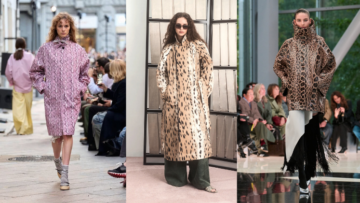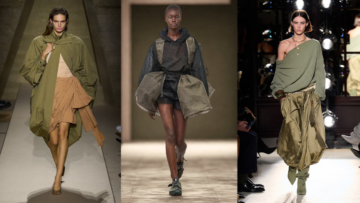
Personal luxury goods sales are “slowing down but not collapsing,” according to a consulting research by Bain & Co. Sales of personal luxury items, which fell to US $ 419 billion in 2024, are expected to decline by an additional 2% to 5% this year, according to the report, which cited concerns that geopolitical tensions and US tariffs could cause economic slowdowns.
Luxury firms have alienated consumers with a persistent crises of inventiveness and steep price increases, in addition to external challenges, according to Bain. Recent Italian investigations that exposed sweatshop conditions in subcontractors producing luxury handbags have also frightened off buyers.
According to the study, sales in two major markets—China and the United States—are declining dramatically. In the US, consumer confidence has been undermined by market volatility brought on by tariffs. China’s economy has shrunk for six quarters due to low consumer confidence. Southeast Asia, Latin America, and the Middle East are all expanding. The study found that the majority of Europe is showing flat growth.
This has led to a stark contrast between companies that continue to see strong creative and earnings growth, like the Prada Group, which reported a 13% increase in revenue to 1.34 billion euros in the first quarter, and companies like Gucci, whose revenue fell 24% to 1.6 billion euros during the same time period.
In an attempt to turn things around, Gucci’s owner Kering this week brought in Luca De Meo, a former Renault CEO and Italian automotive executive. The decision coincides with the hiring of new creative directors for Gucci, Balenciaga, and Bottega Veneta, three of its brands.
Following the announcement of the appointment, Kering’s stock jumped 12%. D’Arpizio highlighted his experience as marketing director at Volkswagen and Fiat, as well as his ability to convert the French automaker Renault back to profitability.
Additionally, brands are adapting to lessen the effects of potential U.S. tariffs. These include cutting back on inventory in retailers and shipping straight from manufacturing locations rather than warehouses.
Matteo Lunelli, president of the Italian luxury brand group Altagamma, emphasised that the industry saw a 28% total rise from 2019 to 2024, “placing us well above pre-pandemic levels.” Despite being vulnerable to world events, luxury spending has a history of recovering quickly thanks to new markets and pent-up demand.






